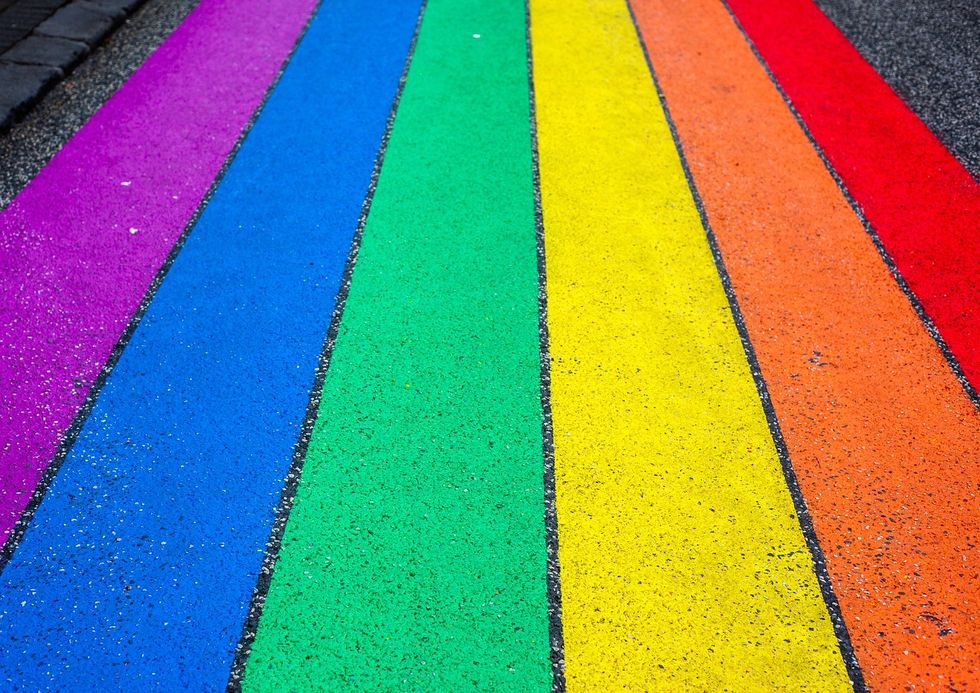What right do we have to discuss topics that are not relevant to our own experience? How effectively can we really understand a situation that we've never been in? So, is Keara Graves being rightfully cautious on her YouTube channel by only discussing themes relevant to bisexuality, or should she be more inclusive and talk more about the LGBTQ+ community in general? Through her channel, Keara Graves establishes that there is more than one way to be a queer woman by challenging stereotypes in her videos.
Keara Graves is fluid with labels of her sexuality. As her channel has developed, she has changed the way she identifies. She initially came out as bisexual, but she never seemed totally comfortable with the label. Almost every time she came out on camera, she followed her statement of bisexuality with something else. For example, she says, "When I first came out, I was like, 'oh my God, I'm so femme. No one's gonna know I'm bi or gay or whatever because I look like a straight girl. Everyone just assumes that I'm straight.'" So, even though she initially identified as bisexual, she was fine with labels like "gay" as well. This approach to her sexuality conveys that, although LGBTQ+ is quite literally an acronym of labels, individuals are valid even if they do not identify with any specific one. Graves' statement also works toward debunking the stereotype that all gay people "look gay." She addresses the reality that society assumes anyone who dresses within the binaries of their own gender is straight. Since her statement, she started to identify as a queer woman, making the pun of calling herself "Queera." Her channel can be an asset to anyone who is struggling with labels. Many people aren't sure what to label their sexuality, and having someone to look up to who is fluid with labels is an inspiration.
The video that Graves' quote came from is titled "Can I Be Bisexual and Dress Femme?" The video addresses many stereotypes that LGBTQ+ people face, like the way that people assume that Graves is straight because of her style. She details her own experience with a femme style, stating how she used to worry that she wouldn't be able to get a girlfriend because of it. She discusses how she has grown to worry about this less and has put more focus on expressing herself in the way that she feels most comfortable. The relationship between sexuality and expression is something that is often misinterpreted. Graves is not the only LGBTQ+ person who has felt the need to conform to a certain style. Many of her viewers in the comments have indicated that they have had similar feelings and have found comfort in Graves sharing her experience.
One commenter expressed, "My style also depends on the day, but I do feel like I'm in a phase where I want to dress more masculine because I only figured out that I'm bi a few months ago, and I want people to know without having to tell them. My mother even told me my style has become more lesbian lately. I kindly told her that there is no such thing, just like there is no thing like hetero style." This person's outlook challenges both the stereotype that LGBTQ+ people must dress a certain way and the repercussions they experience when discovering their personal style. As the commenter began to dress more masculine, their mother labeled the style as "lesbian," and the commenter takes an analytical approach in response by saying that there is no one lesbian style just as there is no particular heterosexual style. The interaction suggests a generational difference in opinion, as the mother assumes that there must be a connection between style and sexuality, while the child tries to kindly direct her toward a more progressive way of thinking. The commenter's vulnerability suggests that Keara Graves has created a safe space for the LGBTQ+ community to share their experiences. They were clearly having some difficult conversations in their home, and the fact that they felt confident enough to express their concerns to Graves and her viewers is highly impactful for the LGBTQ+ community.















